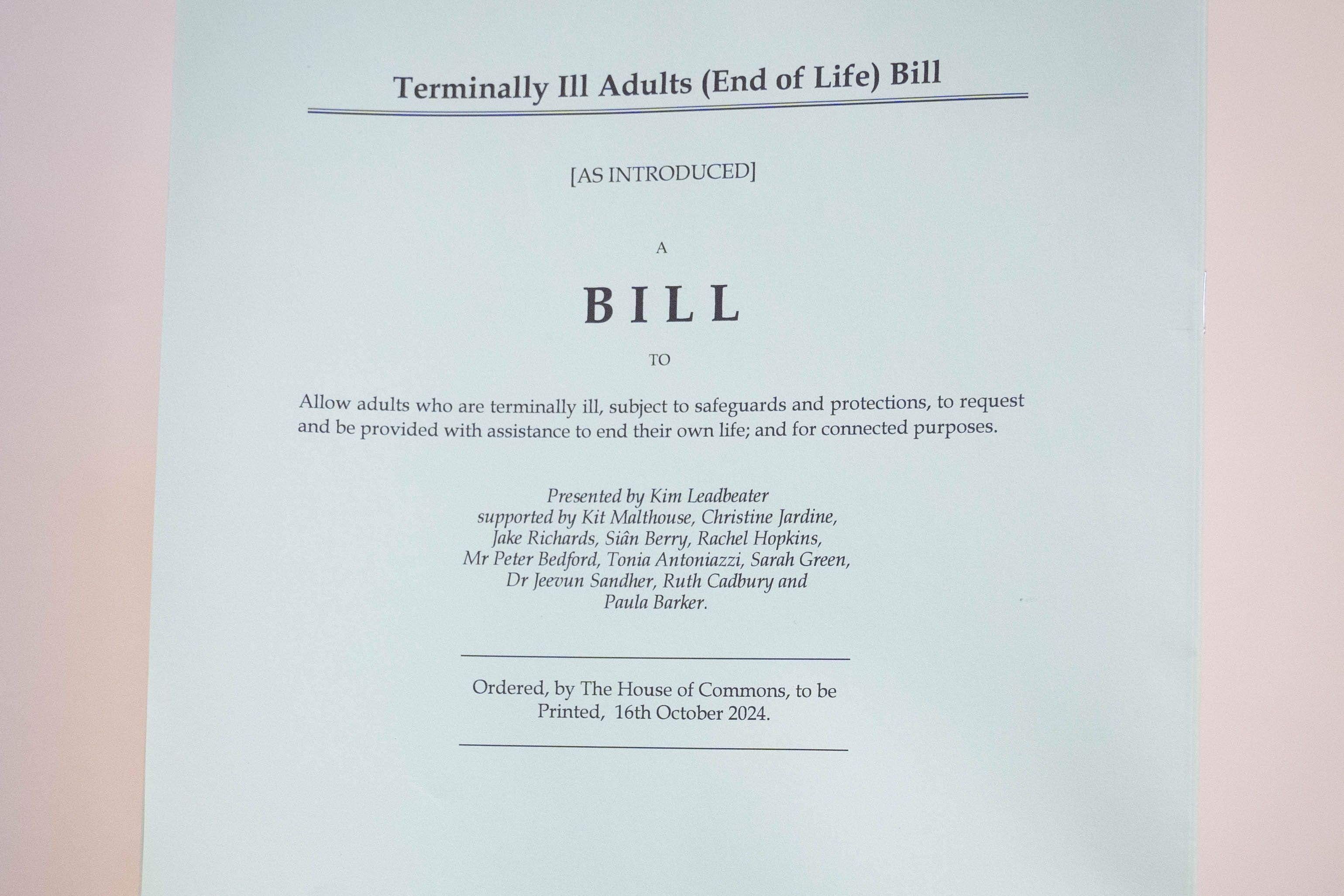Home Secretary signals backing for assisted dying law change
Yvette Cooper said she was in favour of the ‘principle of needing change’ to the law.

The Home Secretary has signalled her backing for proposals to legalise assisted dying for terminally ill people ahead of a Commons vote next week.
Yvette Cooper said she was in favour of the “principle of needing change” to the law and pointed to her previous support for different but similar draft legislation when it came before Parliament several years ago.
It comes after care minister Stephen Kinnock confirmed he would back Labour MP Kim Leadbeater’s Terminally Ill Adults (End of Life) Bill on November 29.
Asked on Good Morning Britain how she would vote on the issue next Friday, Ms Cooper said: “I have voted for change in the past.
I continue to support the principle of needing change but also to ensure that we’ve got the proper safeguards and systems in place
“These are important and difficult issues, and I haven’t changed my view on the principles of this issue. But I do also recognise that there is a detailed debate to be had on the detail of legislation on the kinds of safeguards and things that need to be in place.
“I will continue to follow that debate like everybody else.”
She added: “I continue to support the principle of needing change but also to ensure that we’ve got the proper safeguards and systems in place.”
Asked if that meant a “yes” next week, the Home Secretary replied: “I think I last voted on this about 20 years ago and so I have supported the principle in the past and continue to believe that change is needed but we do need to have that debate on the detail and I’ll continue to follow that debate next Friday.”
The vote next Friday will be the first in the Commons on assisted dying since 2015.
Prime Minister Sir Keir Starmer supported a change in the law on that occasion and has since indicated his ongoing backing for reform but declined to say which way he will vote this time, arguing he does not want to risk pressuring others.
However, other ministers have been more explicit, with Health Secretary Wes Streeting facing a backlash for saying he will reject the Bill and suggesting it could cost the NHS more.
Many of those opposed to a law change have voiced concern about the potential for coercion and mission creep, and say the legislation has been rushed.
But proponents argue existing legislation lacks proper safeguards, fails to respect patient autonomy and discriminates financially between those who can afford to travel abroad to end their own lives within the law and those who cannot.
Education Secretary Bridget Phillipson and Justice Secretary Shabana Mahmood have also said they will vote against the Bill, while Mr Kinnock, who is a minister within Mr Streeting’s health department, said he will back it.
Ms Leadbeater has described her Bill as the most “robust” in the world, with “three layers of scrutiny” in the form of a sign-off by two doctors and a High Court judge.
It would also make coercion an offence with a possible punishment of 14 years in jail.
The Bill, which covers England and Wales, states only terminally ill adults with under six months left to live and a settled wish to die would be eligible.
Figures from pollster YouGov released on Friday indicate that more than seven in 10 people agree with the principle that assisted dying should be legal.
When asked whether “in principle do you think assisted dying should or should not be legal in some form in the UK”, 73% of people said it should be legal, while 13% said it should not. Fourteen per cent said they do not know.
Support was similarly strong among men and women, with 74% of men backing the idea, compared to 73% of women.
Bookmark popover
Removed from bookmarks